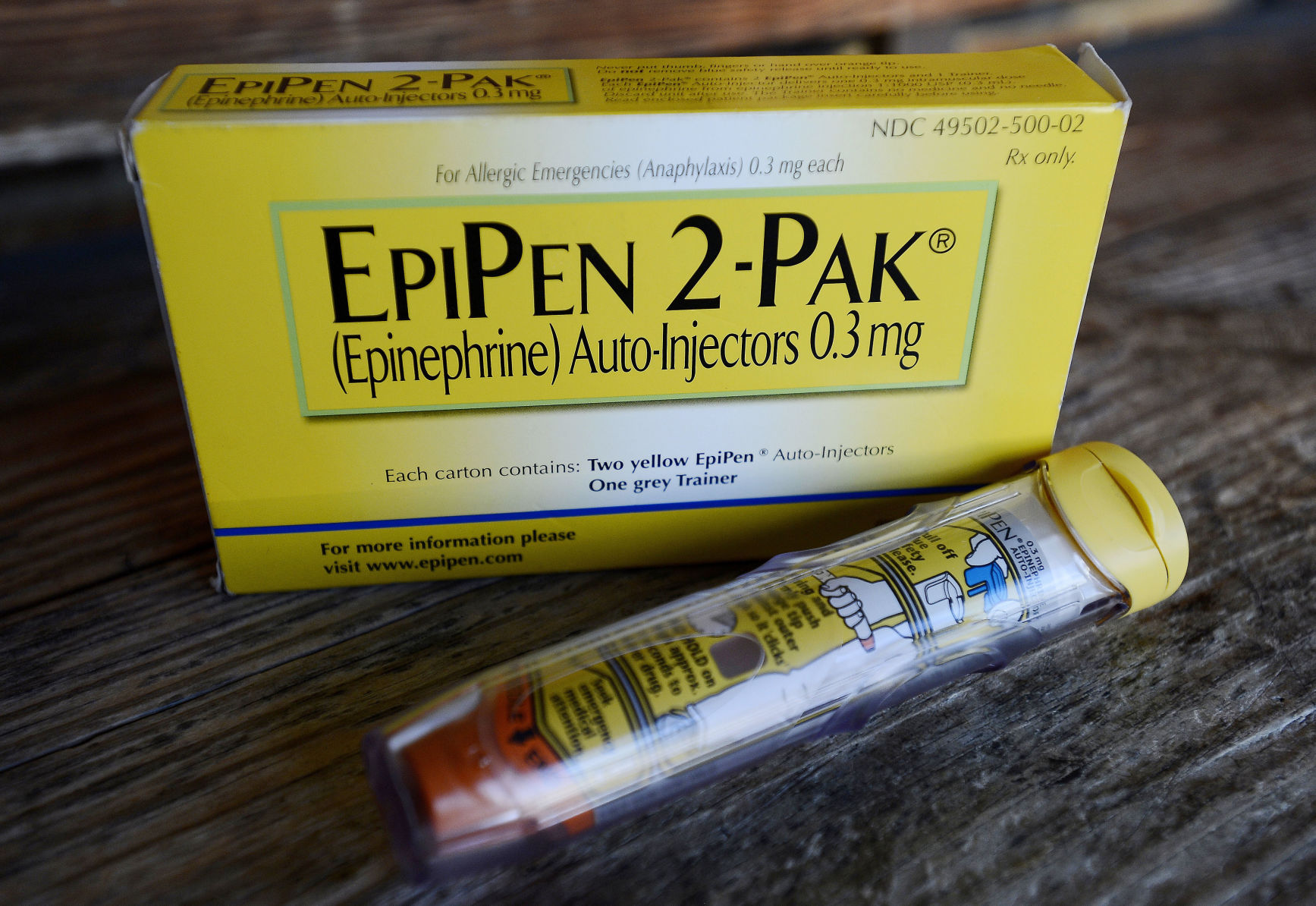Federal judge declines to block Colorado’s EpiPen affordability law, for now

A federal judge on Wednesday declined to block a new Colorado law set to take effect on Jan. 1 that regulates the affordability of EpiPens, but, in the process, requires manufacturers to reimburse or resupply pharmacies with the devices in certain circumstances.
While U.S. District Court Judge Daniel D. Domenico turned down the request for a preliminary injunction, he also rejected Colorado’s motion to dismiss the case outright. EpiPen manufacturer Teva Pharmaceuticals USA, Inc. had shown the state will likely violate its constitutional rights by taking its property without adequate compensation.
“Here, there’s no question what Teva has to give up should a pharmacy seek reimbursement – (EpiPens) or money,” Domenico wrote in a Dec. 27 order. “Nor is there uncertainty about how the affordability program works – if Teva refuses to reimburse a pharmacy with its personal property or money, it faces a monetary sanction.”
In June, Gov. Jared Polis signed a Democratic-backed measure aimed at countering the rising prices of epinephrine auto-injectors, which can save the lives of people undergoing a severe allergic reaction. During the legislative session, lawmakers heard that, while EpiPens cost around $8 to manufacture, the price for uninsured consumers may balloon to upwards of $690.
In response, House Bill 1002 contained two key provisions beginning on Jan. 1, 2024.
First, it capped out-of-pocket costs for insured consumers to $60 for a two-pack of the auto-injectors. Second, it created a program for Colorado residents who do not qualify for Medicare or Medicaid and who also do not have private insurance that is subject to the $60 cap for an EpiPen two-pack. In that situation, a pharmacy may charge up to $60, but can then request the manufacturer resupply it with new EpiPens for free. Alternatively, the manufacturer can reimburse the pharmacy for the amount it paid for the EpiPens – minus what the customer paid at the counter.
Teva, which gained approval in 2018 to market the first generic version of the EpiPen, took no issue with the $60 out-of-pocket cap, acknowledging Colorado is within its rights to impose a price control through insurance coverage. However, Teva argued the reimburse-or-resupply program violated its constitutional rights.
Specifically, Teva believed the requirement to effectively provide pharmacies with free product violated the “takings clause” of the Fifth Amendment, which forbids the government from taking private property “for public use, without just compensation.”

The government countered that Teva could not bring its lawsuit before Jan. 1 because no “taking” had occurred yet – and possibly never would. Moreover, the reimburse-or-resupply requirement was allegedly a proper use of the state’s “police” powers, protecting the public’s health, safety and welfare.
“We have laws in this country where hospitals can’t turn away people from emergency rooms based on their lack of ability to pay,” Assistant Attorney General Pawan Nelson argued to Domenico at a hearing earlier this month. “It’s the same concept we’re talking about here. People shouldn’t be denied access to emergency medicine in an emergency simply because they can’t pay.”
Domenico rejected the state’s argument that Teva could not pursue its claim. The company reported selling 14,000 auto-injectors to Colorado pharmacies last year, and it is “imminent and inevitable” that Teva will face reimbursement-or-resupply requests thanks to HB 1002, Domenico noted.
The law “requires that possession of property be transferred from its owner to another. That is all that is required to trigger the Taking Clause,” he wrote.
Domenico acknowledged the difficulty Teva might face in seeking “just compensation” from the government after Jan. 1, requiring the company to track every EpiPen dispensed according to the program and filing lawsuits indefinitely against Colorado for money. However, he explained that takings cases are treated differently from other alleged constitutional violations.
In contrast to First Amendment lawsuits, for example, where plaintiffs may file a “pre-enforcement” challenge before an allegedly unconstitutional law takes effect, there is no parallel under the “takings clause.”
“In fact, not a single case cited by Teva granted preliminary relief to enjoin a taking,” Domenico wrote.
Consequently, Domenico rejected Teva’s premature attempt to block the reimburse-or-resupply program. He added that Teva could reasonably keep track of any compensation it is owed between Jan. 1 and the conclusion of its federal lawsuit, should it prevail.
The case is Teva Pharmaceuticals USA, Inc. v. Weiser et al.














